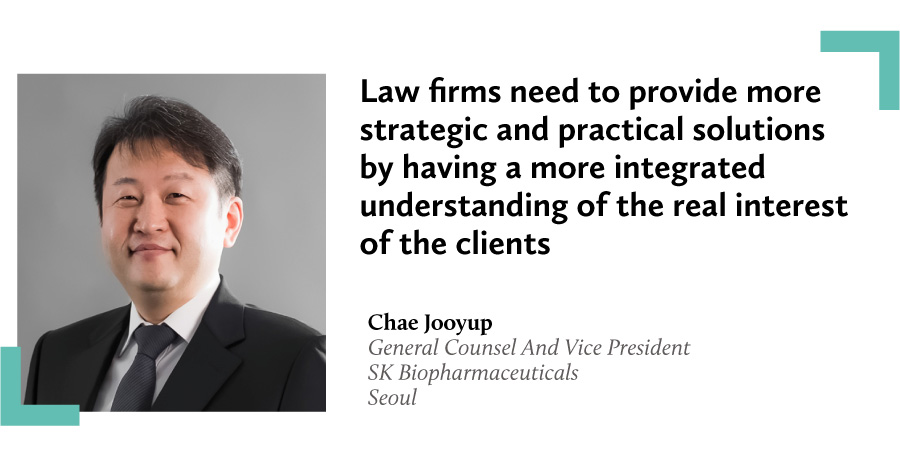Do you really want to find out? Our survey gets the real opinions of regional in-house counsel when it comes to legal services from law firms, and they’re not pulling any punches. Putro Harnowo reports
Having law firms on your side is a must in today’s business climate. But sometimes in-house counsel feel the relationship is one-sided, the fee structure is lopsided, and their company’s needs have been outsided.
To get the real picture, Asia Business Law Journal conducted a survey of in-house counsel in the region to hear their complaints and expectations. The survey found that not all is well. The majority of in-house counsel surveyed expressed the importance of a harmonious relationship with their law firm counterparts, but most of them have a negative view of traditional pricing practices.
“Understanding our business, what matters to us, and providing us with insights and advice from people with genuine domain expertise, who can ideally point out risks or opportunities that we may not have otherwise fully appreciated, is a great way to add value,” says Christopher Betts, general counsel at Grab in Singapore.
“Some law firms try to be everything to a client, which can result in inconsistent quality. The better firms figure out what they are really good at and focus on doing an outstanding job in those areas,” says Betts. “I also appreciate firms that are prepared to actively work with us to find ways to manage our legal costs effectively.”
For Chae Jooyup, general counsel and vice president of SK Biopharmaceuticals in Seoul, communication is vital when dealing with external counsel. “Law firms need to provide more strategic and practical solutions by having a more integrated understanding of the real interest of the clients through intensive and robust communication and fact-finding efforts,” says Chae.
Jolly Abraham, director of legal at private equity company True North in Mumbai, suggests that law firms “price their output and deliverables that add value to our business, rather than their time to deliver the output”.
“Law firms can adopt smart legal tech to ensure that lawyers are doing high-value legal work,” says Abraham. “They shouldn’t be billing us for the time taken by lawyers to do things that a machine can do much more efficiently.”
 Pricing issue and poor service
Pricing issue and poor service
Among 108 respondents to our survey, 51% cited pricing issues and poor quality as their top complaints. Other issues include slow turnaround time and poor communication, as expressed by 47% and 40% of the respondents, respectively. Most in-house counsel raised at least two complaints in the survey.
“Law firms provide unrealistic, low-ball quotes during the bidding stages and ask for more as the matter or transaction progresses,” says Raymond Goh, group general counsel, international at China Tourism Group in Hong Kong.
“A particular Magic Circle law firm has gained a bad reputation for such practices in recent years, and we have blacklisted all firms that engage in similar practices,” says Goh. “The quality of the law firms in Hong Kong, even Magic Circle and Wall Street law firms, and their lawyers, even junior partners, have gone down dramatically over the years. I’d be willing to pay more for better service quality and pragmatic advice.”
You must be a
subscribersubscribersubscribersubscriber
to read this content, please
subscribesubscribesubscribesubscribe
today.
For group subscribers, please click here to access.
Interested in group subscription? Please contact us.
你需要登录去解锁本文内容。欢迎注册账号。如果想阅读月刊所有文章,欢迎成为我们的订阅会员成为我们的订阅会员。
Our methodology
To find out what in-house counsel in the region think about the legal services they have received, and how they select law firms to help with their tasks, Asia Business Law Journal invited them to participate in a survey, carried out in September. The report draws on an analysis of responses from 108 in-house counsel in mainland China (25%), India (17%), Indonesia (14%), Hong Kong (11%), Singapore (10%), Japan (7%), the Philippines (6%), South Korea (3%), Malaysia (2%), Taiwan (2%), and others (4%).
Responses were received from professionals in leading companies in the region including: Agricultural Bank of China, AirTrunk, American Express India, AUO, Auras Technology, Bank CIMB Niaga, Julius Baer, Baramulti Group, Berjaya Corporation Group, BOCOM International Holdings, Bosch, Boutique Corporation, Budweiser, BW Group, Centrium Advisory, China National Aviation Fuel Logistics, China National Oil and Gas Exploration and Development Company, China Orient Asset Management, China Renaissance, China Resources Enterprise, China Tourism Group Corporation Limited, CIT Group, CRRC Zhuzhou Locomotive, CureFit, Dassault Systemes, Essar Capital, Fullerton Healthcare, GapSat, Global Business Power Corporation, Grab, GSK, Hanon Systems, Hyundai Motors, ICICI Securities Primary Dealership, Indonesia Financial Group, Infosys, Jaldhi Overseas, Juniper Networks, KE Holdings, Khaleeji Commercial Bank, KM Dastur, LexinFintech Holdings, LG Electronics India, L’Oreal Indonesia, Lotte International, Mindtree, Ming Yuan Cloud Group Holdings, Nippon Steel Corporation, Oerlikon, Optum Global Solutions, Pacific & Orient Insurance, Perfect World, Philex Mining Corporation, Rohan Rajdeep Tollways, Saint-Gobain, Schaeffler India, Shaanxi Investment Group, Shanghai Zhihe Network Technology, SK Biopharmaceuticals, Sporta Technologies, TCL Capital, Temasek International, Terumo Corporation, the Export Import Bank of China, The Great Eastern Life, Thome Ship Management, Toridoll Holdings, True North, TV Today Network, Tysan Holdings, MP Healthcare, Woolworths, Yum China Holdings, and many more.




 Pricing issue and poor service
Pricing issue and poor service




















